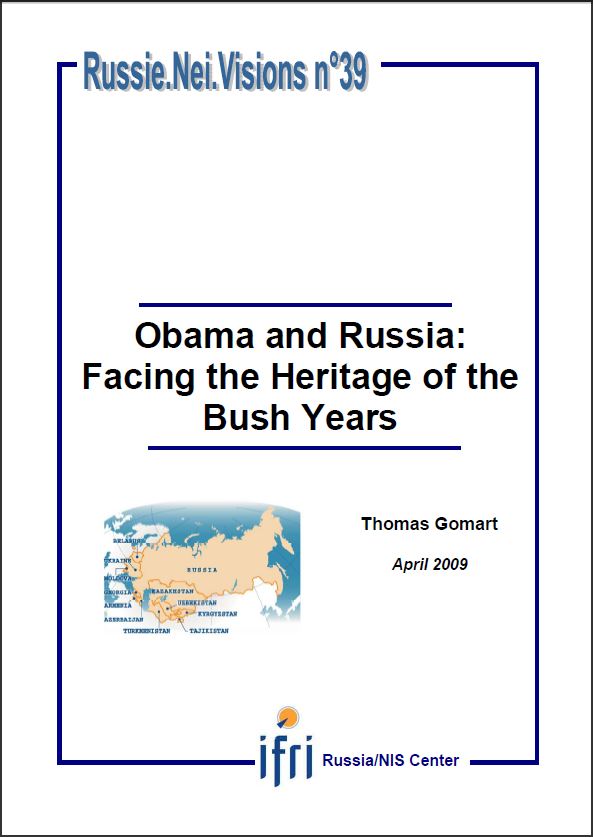Obama and Russia: Facing the Heritage of the Bush Years

Barack Obama's recent overtures toward Russia show a desire to break away from the Bush years, which were characterized by a profound deterioration in American-Russian relations. To gauge the chances of success for this openness, we must reexamine the Bush legacy weighing on the resumption of relations, especially on their strategic dimension. Indeed, direct exchanges between the two countries over the course of the past eight years have increasingly turned towards head-on opposition. Indirect exchanges between the two states in Russia's neighborhood also display contradictory influences, with Iran and Georgia bringing to light deep-rooted differences fuelled by cold war-style rhetoric. In other words, even if Barack Obama appears to be imposing his own style by reorienting America's foreign policy, his scope for action is partly limited by the legacy of his predecessor.
Download the full analysis
This page contains only a summary of our work. If you would like to have access to all the information from our research on the subject, you can download the full version in PDF format.
Obama and Russia: Facing the Heritage of the Bush Years
Related centers and programs
Discover our other research centers and programsFind out more
Discover all our analysesThe Caspian Sea as an Emerging Energy Hub : Potentials and Limitations
This report analyzes the prospects of the Caspian Sea region — and its key actors except for Russia and Iran — becoming an important energy hub serving the needs of the European Union (EU).
The European Union's Strategic Test in Georgia
The political crisis brewing in Georgia is of an existential nature for the country. What is at stake is Georgia's future as a democratic and sovereign European nation (EU).
Commanders of Putin's Long War: Purged, Reshuffled and Disgruntled
The trend of reshuffling the Russian top military command in the course of a fast-evolving and far from successful war has progressed unevenly both across the Armed Forces’ structures and in time. The rationale for and timing of the abrupt cadre decisions made by Commander-in-Chief Putin often defy logical explanation, and the rare official clarifications are no more informative than the usual information blackout.
Russian Military Manpower After Two and a Half Years of War in Ukraine
In addition to a military victory in Ukraine, the Russian leadership is planning to build up sizable troop formations for a possible conflict with NATO in the Baltic region and the Kola Peninsula. In particular, current plans aim for the military manpower to grow by about 350,000, reaching a total of 1.5 million soldiers and commanders. In the context of the current conflict in Ukraine, this cannot be accomplished without a new wave of mass mobilization.









